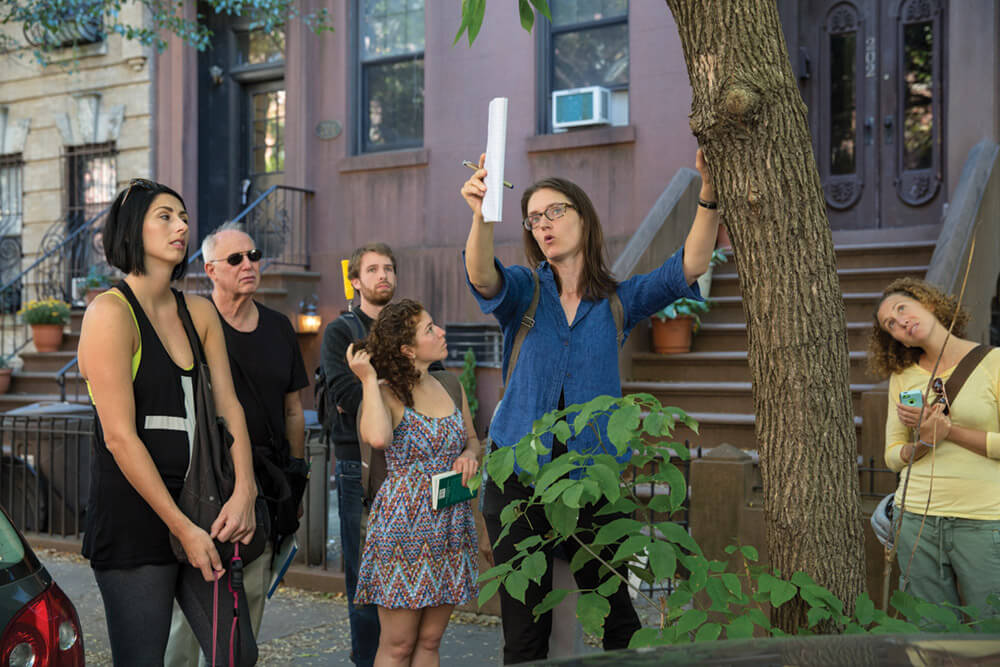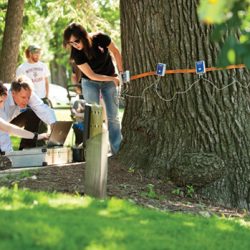Lisa Nett ’97: Arbor Day All The Time

In Brooklyn, New York, Lisa Nett helps urban residents appreciate the trees that many take for granted. Photo: Bud Glick
For Lisa Nett ’97, a tree doesn’t just grow in Brooklyn — it also merits an appreciative look and a flash of recognition. That’s why she’s taught tree identification since 2011 with the Brooklyn Brainery, a grass roots organization that offers classes on a variety of topics.
On a summer Saturday, Nett asks her students to form a circle under a flowering linden on a Brooklyn side street and name their favorite tree.
“Sweet gum,” says one pupil. “Fig — and I can’t get enough of the ones from my mother-in-law’s tree,” says another. “Spruce,” avers a man from Maine — the home of Moxie cola, which is flavored by gentian root, notes Nett. Many are uncertain of their favorites, perhaps growing up in urban environments where nature was not a focal point. And that’s fine, says Nett: “The point is being curious and starting to look, doing some observation.”
We tap into our surroundings with trees, says Nett, who has a bachelor’s degree in natural resources. “We’re all caught up in the hustle-bustle, but we walk by trees all the time. Maybe you don’t have time to smell the roses, but you have time to slow down and look at the trees. The shape, the smell — there are almost endless possibilities for making that connection.”
Nett still recalls the University of Wisconsin tree that swayed her interest: a deciduous conifer called a tamarack in the UW Arboretum. The tree turns golden in the fall and is the only conifer in North America to lose its needles in the winter. Although she grew up on a Wisconsin dairy farm, Nett hadn’t seen tamaracks before she took a botany class with professor Michael Adams.
“I realized [in that class] that you could enjoy a tree simply because it’s beautiful — you don’t even have to go into the science to know that,” she says. “That said, any interest in science and nature often starts with that — an interest in the beautiful.”
Studying natural resources took Nett to a biology field station in Germany for a science research internship. Later, while teaching English in China, she learned about cities. Beijing’s massive size prompted her to try living in New York City. And, wandering around Munich showed her “how planful and thoughtful Germans are in organizing their urban spaces — making parks and creating spaces of respite in the city.”
In a megacity, Nett has found such respites to be very necessary. “I find that the students I teach are, yes, interested in trees. But they’re also just hungry for connections with nature.”
Published in the Winter 2014 issue



Comments
Debbie Herrick November 8, 2014
Thus is something to be really proud of oneself for. Way to go, Lisa.